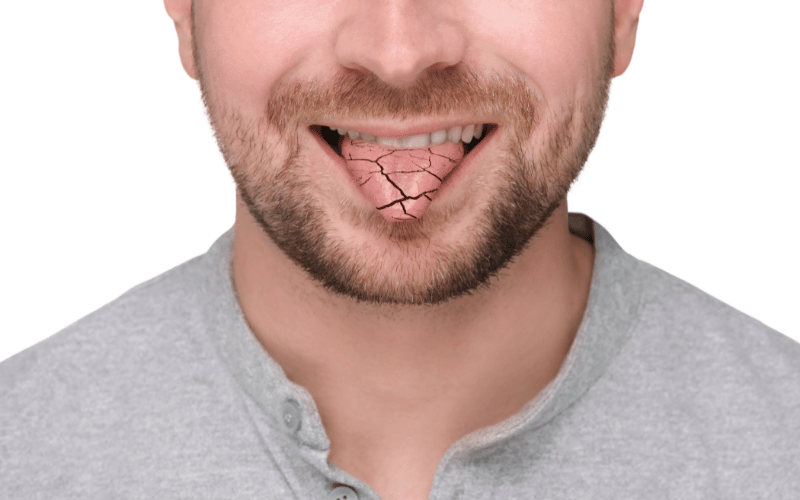Cause 6: Dry Mouth

One might wonder, “What’s the big deal about a dry mouth?” Well, for starters, saliva plays an indispensable role in our oral health. When its production diminishes or ceases, a slew of issues can arise, including the dreaded oral thrush.
Saliva isn’t just there to aid in digestion or facilitate speech. It’s a multitasker, continuously washing away food debris, buffering acids, and delivering essential minerals to our teeth. Most importantly, it helps to maintain the balance of microorganisms in our mouth. With diminished saliva, the oral environment changes, often becoming more alkaline, and this shift can be a field day for opportunistic pathogens like Candida.
Several factors contribute to dry mouth, known medically as xerostomia. Medications, certain medical treatments, and specific health conditions can all be culprits. For instance, many medications list dry mouth as a side effect – from antihypertensives to antihistamines.
The challenge with dry mouth is that it’s not always evident until significant discomfort arises. People might notice cracked lips, difficulty swallowing, or even a persistent sore throat. As the oral environment becomes increasingly less hostile to Candida, the fungus thrives, leading to the characteristic creamy white lesions of oral thrush.
The silver lining? There are actionable steps to manage dry mouth. Hydrating frequently, using saliva substitutes, and considering humidifiers are all viable strategies. Moreover, staying vigilant about oral hygiene – regular brushing, flossing, and rinsing – can make a world of difference. While dry mouth might seem like a mere inconvenience, its implications for oral health are profound. (6)